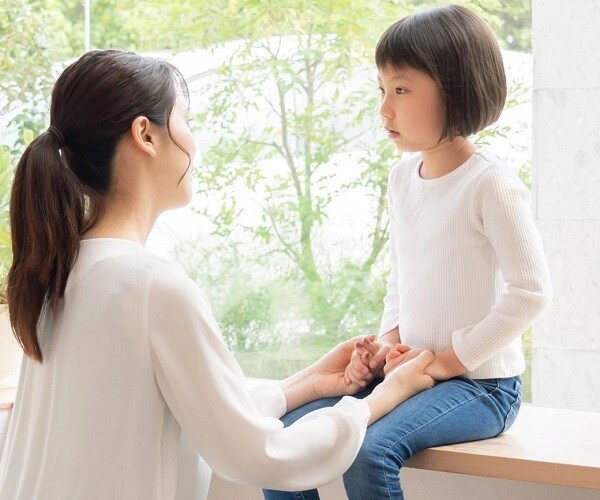Friendships are integral to a child’s development. Through peer interactions, children learn communication, collaboration, and conflict resolution skills. Lacking playmates can impact a child’s future self-esteem and social abilities. Thus, it is essential for parents to help foster and maintain healthy friendships.

Illustration.
When your child says, “Mom, my classmates won’t play with me,” it is important to respond appropriately. Instead of just comforting your child, try to understand the situation better by asking questions like, “Why won’t they play with you?” or “Have you tried inviting them to play?”
Guide your child in developing communication skills and making new friends. For example, teach them how to express themselves, share toys, or engage in group activities.
In reality, this is also an opportunity for parents to help children develop social and emotional skills and build positive relationships. By listening, understanding, and supporting your child, you can help them navigate friendship challenges and lay a strong foundation for their future development. On this matter, psychologist Nguyen Ngoc Vui will provide deeper insights and suggest appropriate responses for parents.

Psychologist Nguyen Ngoc Vui

If your child says they have no one to play with, could this be a sign of bullying?
First, when hearing this, parents should observe their child’s emotions. Are they sad, upset, or do they seem to view it as a non-issue? This situation could indicate bullying, either directly or indirectly, where the bully doesn’t explicitly show anger or negativity but uses indirect means to cause harm.
Identifying this behavior is crucial. Parents need to investigate the situation by communicating with their child about what happened in the classroom. This makes children feel heard and understood while giving them a comfortable space to express their emotions.

How should parents respond to their child’s emotions when they feel left out by their classmates?
As mentioned earlier, parents should respond based on how their child perceives the situation. In my experience, it’s common for a group of friends to drift apart over time.
For younger children in kindergarten or first grade, this situation may be more complex and carry a higher risk of psychological impact than for older students. Thus, it’s essential to consider how the child interprets the situation as a natural occurrence, a lesson, or a source of emotional distress.
If the child feels hurt, parents need to provide emotional support and help them recover. If the child views it as a learning experience, parents should initiate a conversation and offer guidance: “Are you prepared to deal with being left out?” “Do you want to take steps to resolve this issue?” “What actions can you take to succeed in this situation?”

How might not having friends affect a child’s self-esteem?
We can look at this from two perspectives. If a child has no friends to play with, it can significantly impact their self-esteem, especially during adolescence when peer relationships largely shape their personalities.
On the other hand, if a child switches friend groups—”You won’t play with me, but I’ll play with someone else”—it encourages them to reassess and choose their friends wisely. So, it’s essential to consider whether the lack of friends diminishes their self-worth. For instance, they might think, “I’m not pretty,” or “I’m not smart enough to have friends.” However, some children may recognize that they’ve “outgrown” their current friend group and seek more suitable company.

What can parents do to create a supportive environment that facilitates making friends?
First, help your child understand their identity, potential for growth, and the importance of friendships. Discuss the qualities of a good friend and explore the friendships around them: “Your classmate A is very friendly,” “Neighbor B is helpful to adults,” or “I think you and classmate C would get along well.” Shared interests, similar upbringing, and compatible lifestyles foster connections and help children find suitable friends.
In any case, when children encounter friendship issues, parents should be their trusted advisors, guiding them to identify the causes and providing solutions if needed.
3 Types of Families That Help Children Excel, Be Confident, and Adapt Well in Preschool
Every child has the potential to excel and shine. Nurturing this potential and creating an environment that fosters confidence and a love for learning is paramount. This introduction paragraph aims to delve into the three types of families that often create these outstanding children, and it is crucial to understand the dynamics that play a pivotal role in a child’s early education and their journey towards excellence.





































